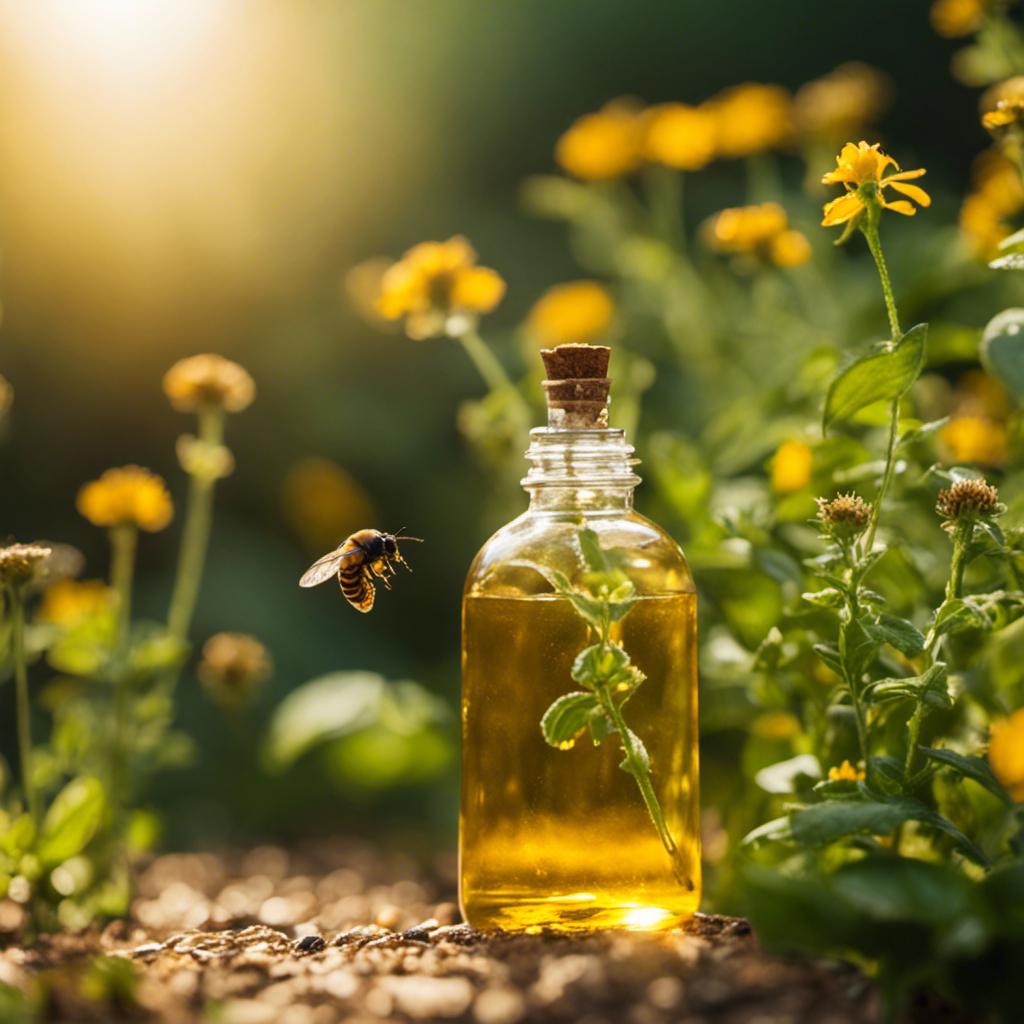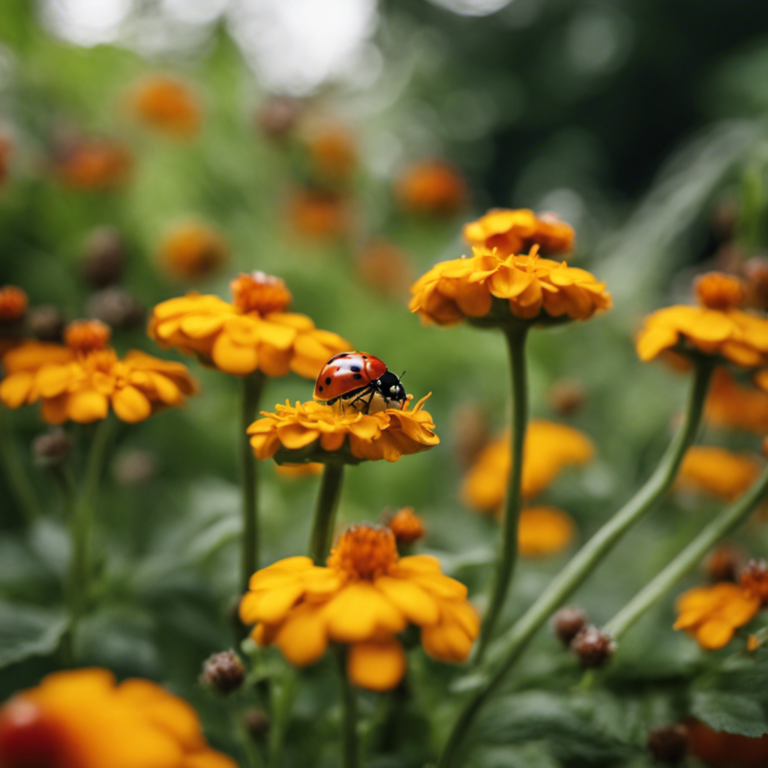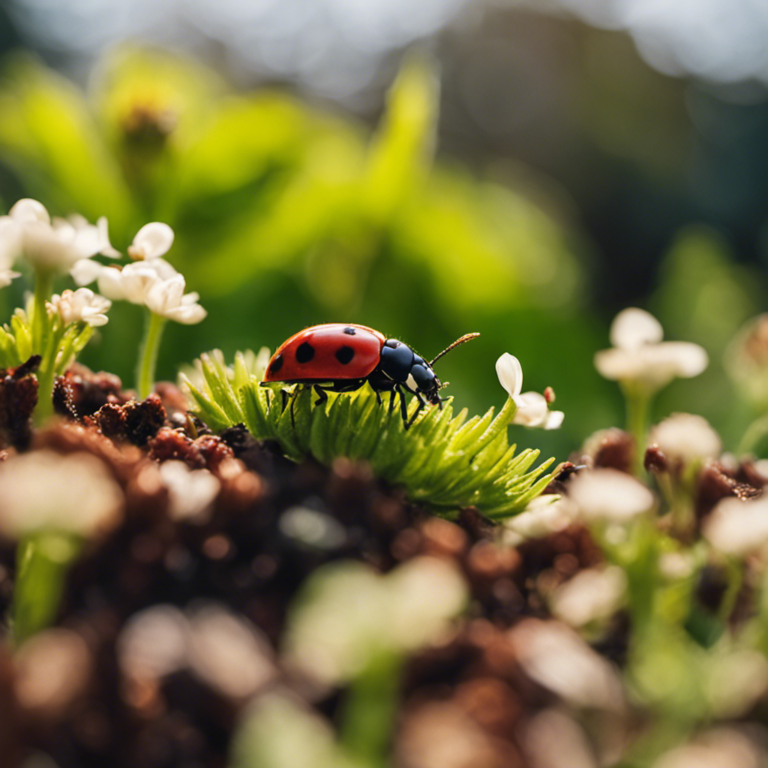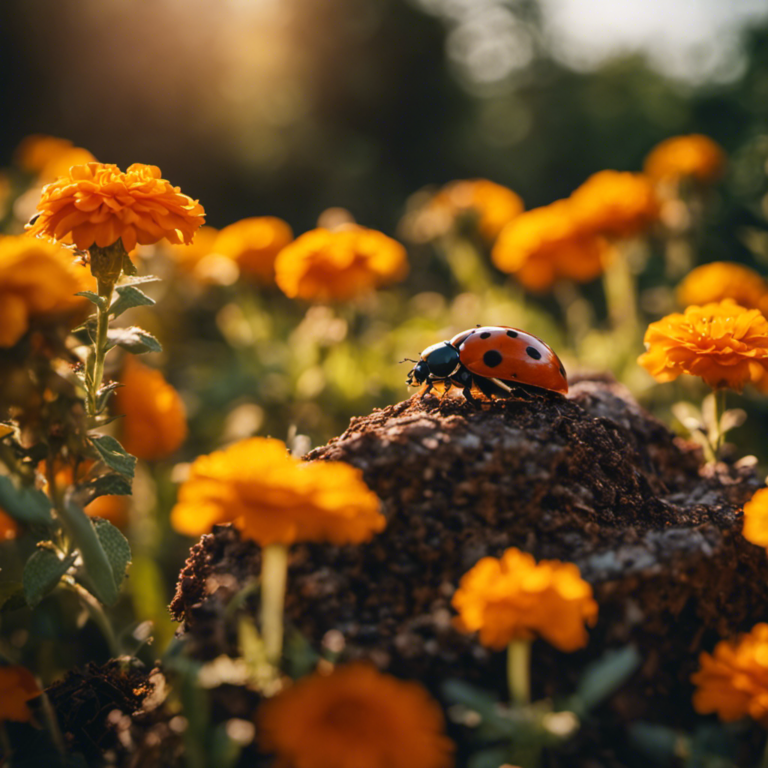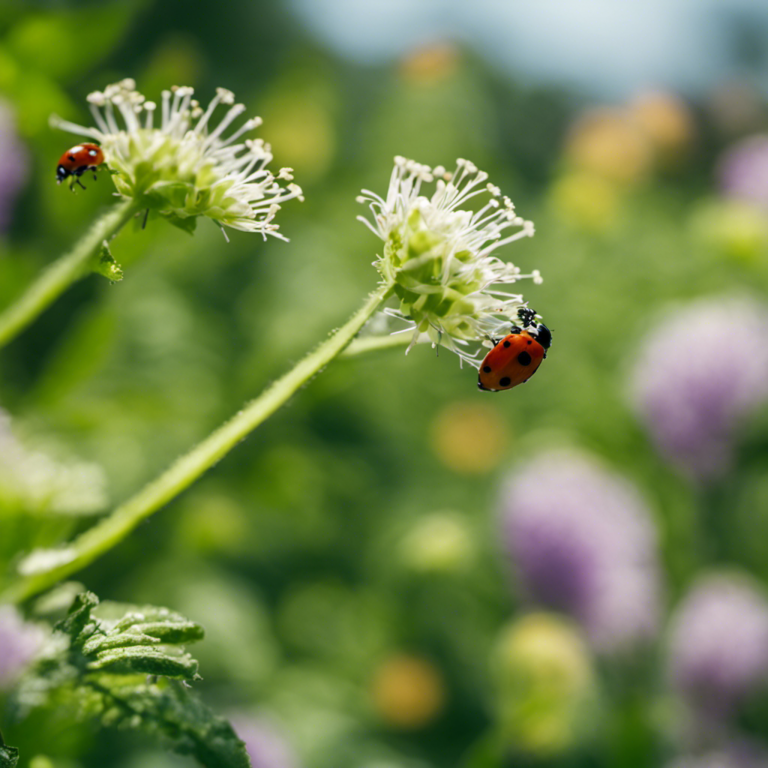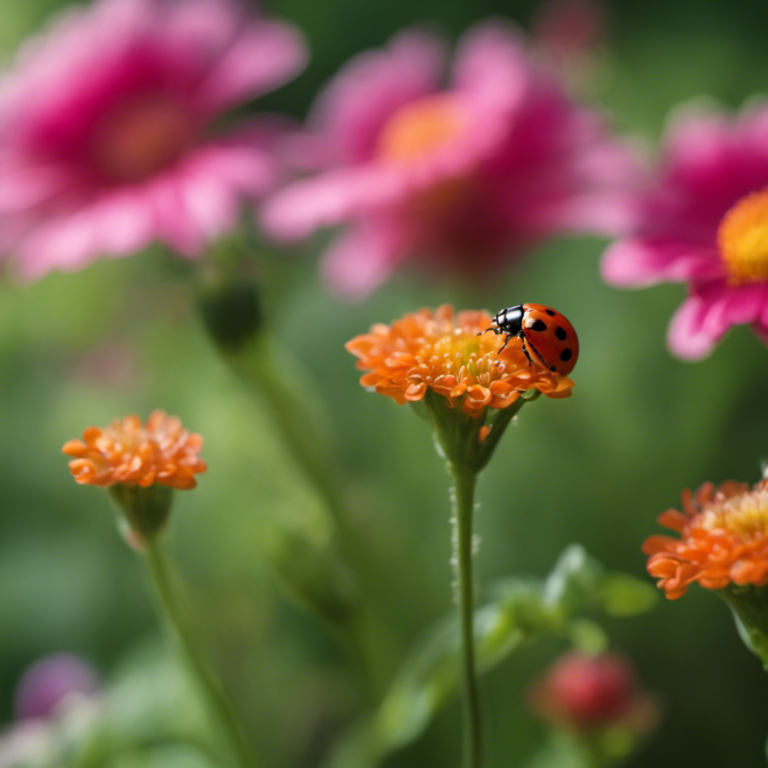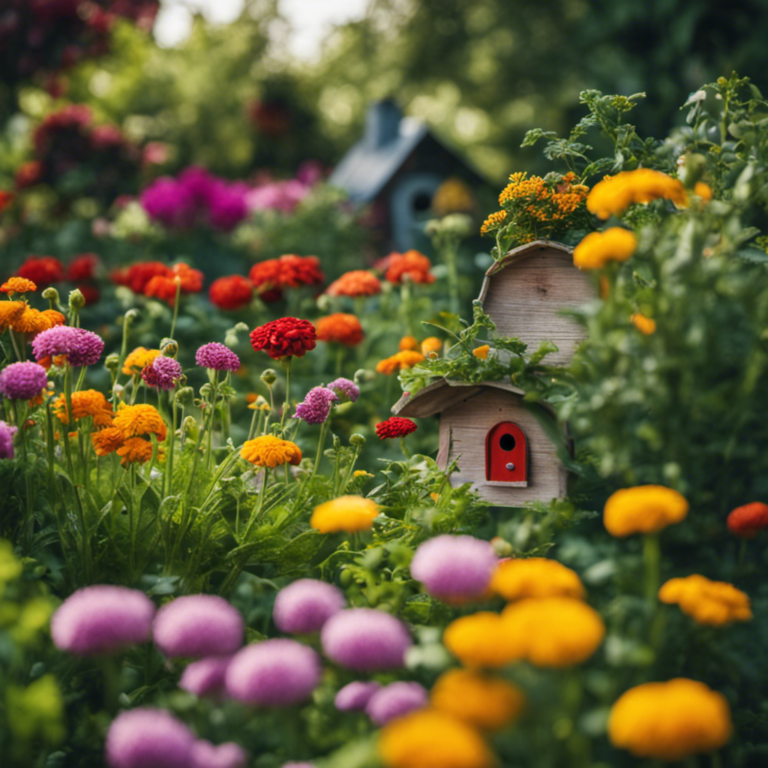Are pests causing problems in your herb garden? Don’t worry, you can regain control with do-it-yourself pest control methods!
In this article, we’ll guide you through natural techniques to keep those pesky insects away. From using essential oils and creating homemade insect traps to practicing companion planting and utilizing organic pest control sprays, we have all the information you need.
Bid farewell to unwanted critters and welcome a flourishing herb garden. Let’s begin your journey to a pest-free oasis!
Key Takeaways
By incorporating essential oils, homemade insect traps, companion planting, and natural pest deterrents, you can effectively control pests in your herb garden. These organic pest control methods provide a sustainable and environmentally friendly approach.
Regularly monitoring your garden, identifying pests, and taking immediate action is important. Implementing these natural practices will help you maintain a thriving herb garden free from unwanted intruders.
So, start using these techniques and say goodbye to pesky pests for good!
Essential Oils for Pest Control
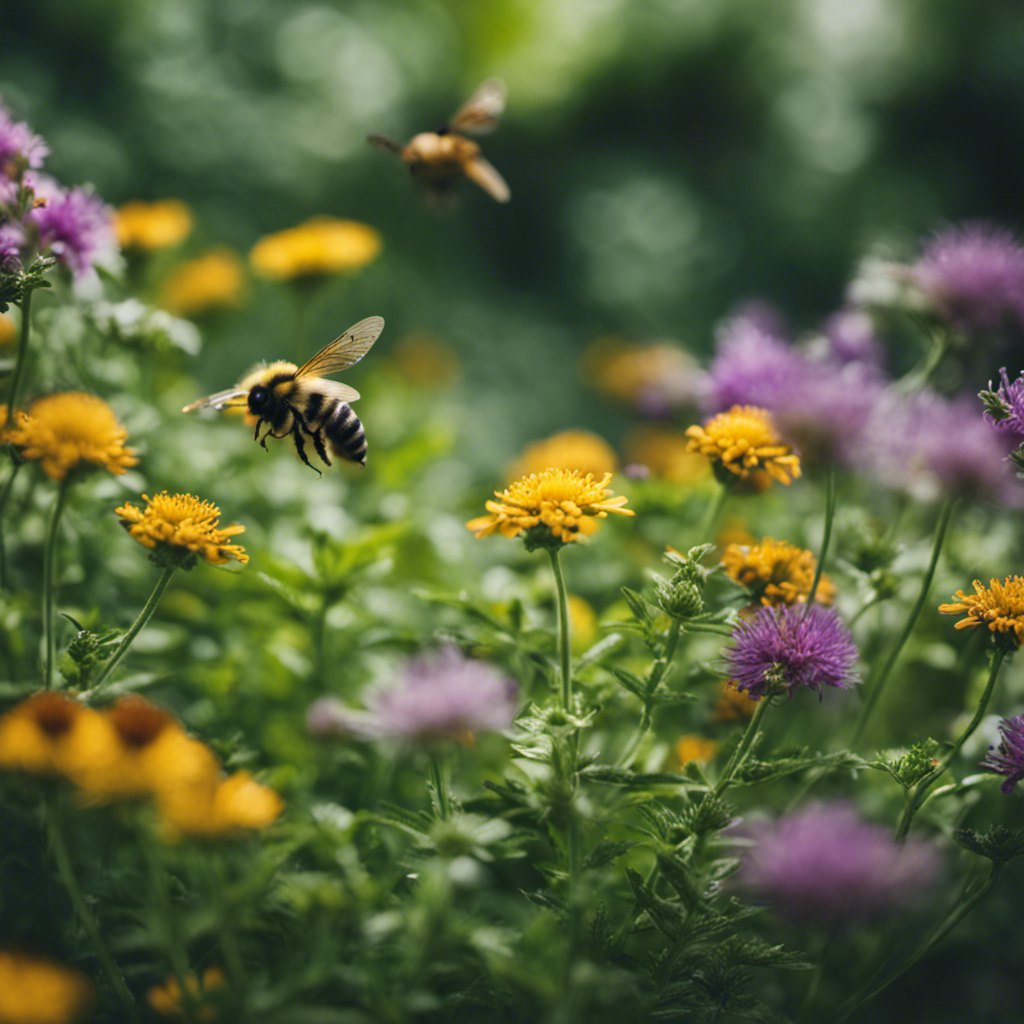
Natural Pest Control with Essential Oils
If you’re looking for a safe and natural way to repel pests in your herb garden, essential oils are a great solution. Not only do they emit a strong scent that drives away insects, but they can also disrupt the reproductive cycles of pests.
Creating your own DIY essential oil recipes for pest control is easy and customizable to target specific pests. For instance, a combination of peppermint and eucalyptus oils can effectively repel ants, while a blend of lavender and citronella oils can keep mosquitoes at bay.
To make these DIY recipes, simply mix a few drops of your preferred essential oils with a carrier oil like almond or coconut oil. Apply the mixture directly to affected areas or create a spray for convenient application.
Homemade Insect Traps
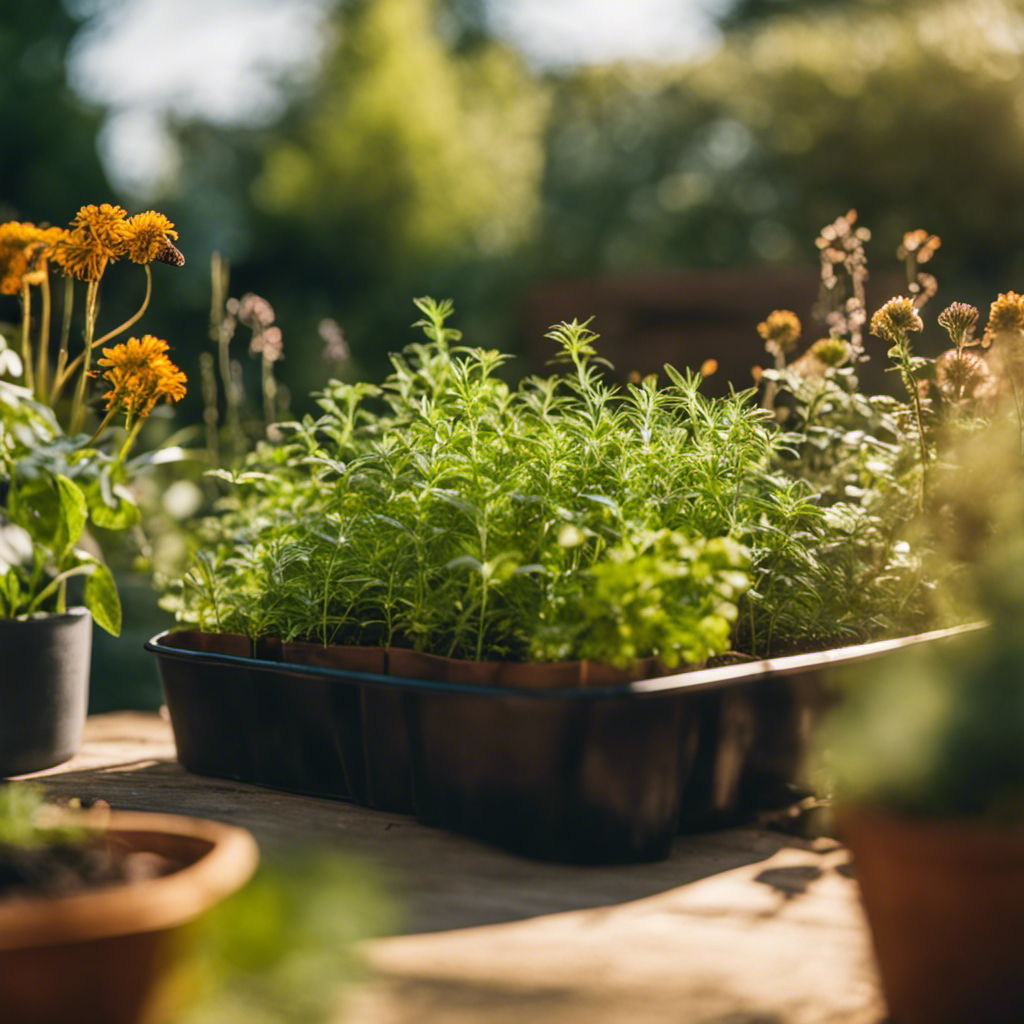
Making your own homemade insect traps is a great way to enhance your natural pest control in the herb garden. These DIY traps are effective and easy to make, providing a natural solution to keep pests at bay.
Here are three simple and effective homemade insect traps you can create:
-
Fruit Fly Trap: Grab a small glass jar and fill it with apple cider vinegar and a few drops of dish soap. Place a paper funnel inside the jar, with the narrow end pointing down. The fruit flies will be attracted to the vinegar and soap mixture, but won’t be able to escape.
-
Ant Repellent Trap: Mix equal parts of white vinegar and water in a spray bottle. Spray this solution near ant trails and entry points to deter them. You can also sprinkle cinnamon or black pepper in areas where ants are frequently seen, as they dislike the strong smell.
-
Sticky Trap: Cut strips of yellow or blue construction paper, and coat them with a sticky substance like petroleum jelly or glue. Hang these strips near plants or attach them to stakes to capture flying insects like aphids, whiteflies, and thrips.
Companion Planting to Repel Pests
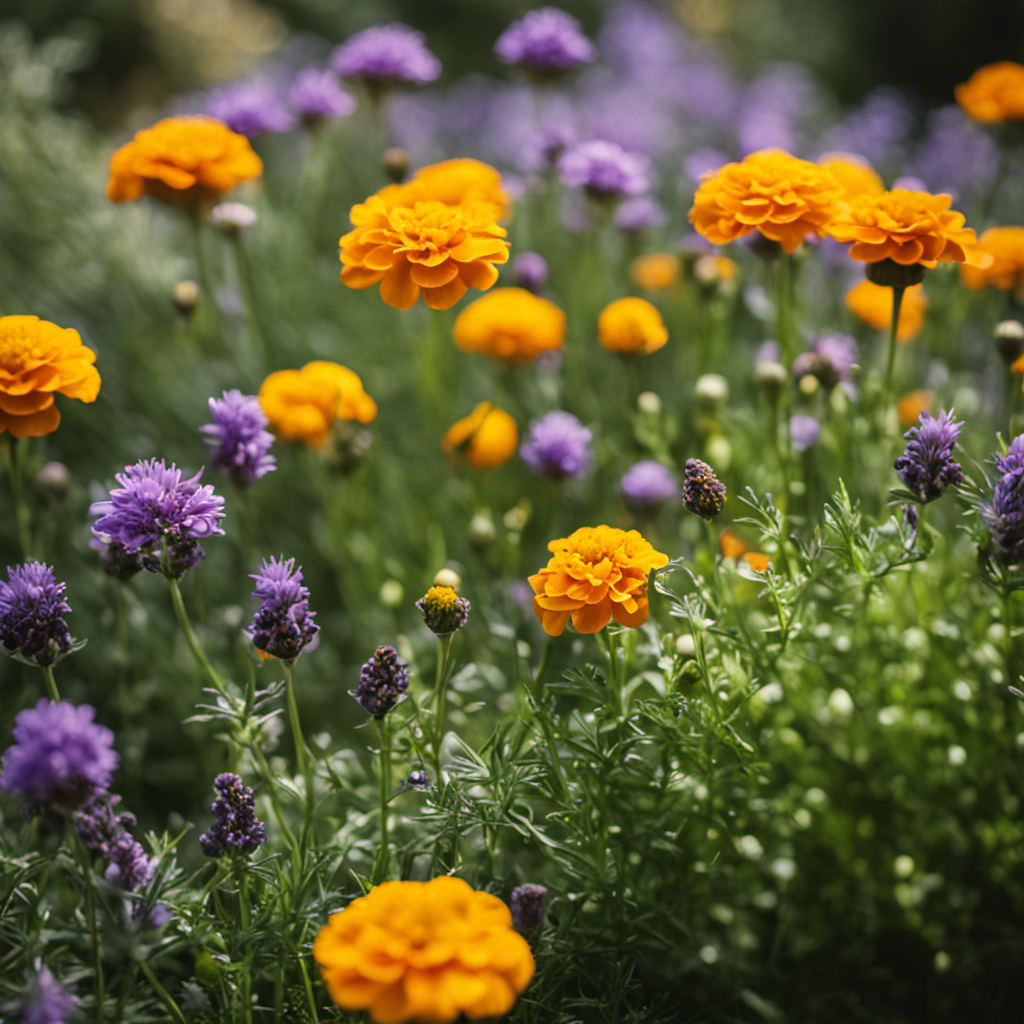
Improve your natural pest control in the herb garden by using companion planting to repel pests.
Companion planting is a technique that involves growing specific plants together to discourage pests and support beneficial insects.
By strategically planting herbs and other pest-repelling plants, you can create a natural barrier that safeguards your herbs from infestations.
For instance, planting marigolds alongside your herbs can deter common garden pests like aphids and nematodes.
Additionally, practicing crop rotation can help prevent the buildup of pests and diseases in your herb garden.
Natural Pest Deterrents
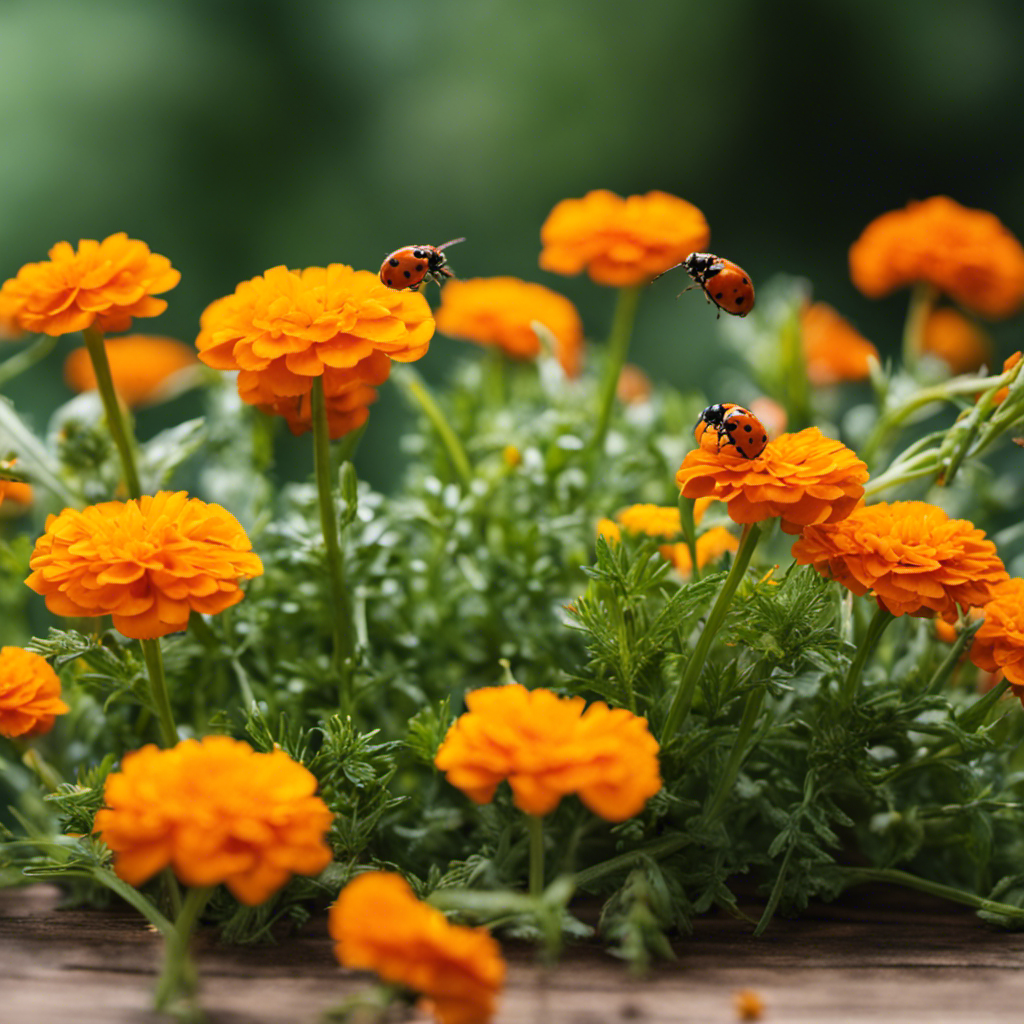
Improve your pest control in the herb garden by incorporating natural deterrents into your gardening routine. These deterrents not only protect your herb garden from common pests but also offer several benefits of natural pest control. Here are three effective natural pest deterrents you can use:
-
Neem oil: Derived from the neem tree, neem oil is a natural insecticide that’s highly effective against a wide range of pests, such as aphids, beetles, and caterpillars. It disrupts the feeding and reproductive cycles of these pests, preventing further damage to your herb garden.
-
Garlic spray: Create a homemade garlic spray by mixing crushed garlic cloves with water and spraying it on your plants. The strong odor of garlic acts as a natural deterrent, keeping pests like slugs, snails, and aphids away.
-
Diatomaceous earth: Made from fossilized algae, diatomaceous earth is a powdery substance that’s abrasive to pests. When pests come into contact with it, they dehydrate and die. It’s particularly effective against crawling insects like ants, fleas, and beetles.
By incorporating these natural pest deterrents into your gardening routine, you can protect your herb garden and create a healthy and thriving environment for your plants. Remember to use these methods consistently for the best results.
Quote: "Using natural pest deterrents in your herb garden not only keeps pests away but also promotes a safe and healthy environment for your plants."
Organic Pest Control Sprays
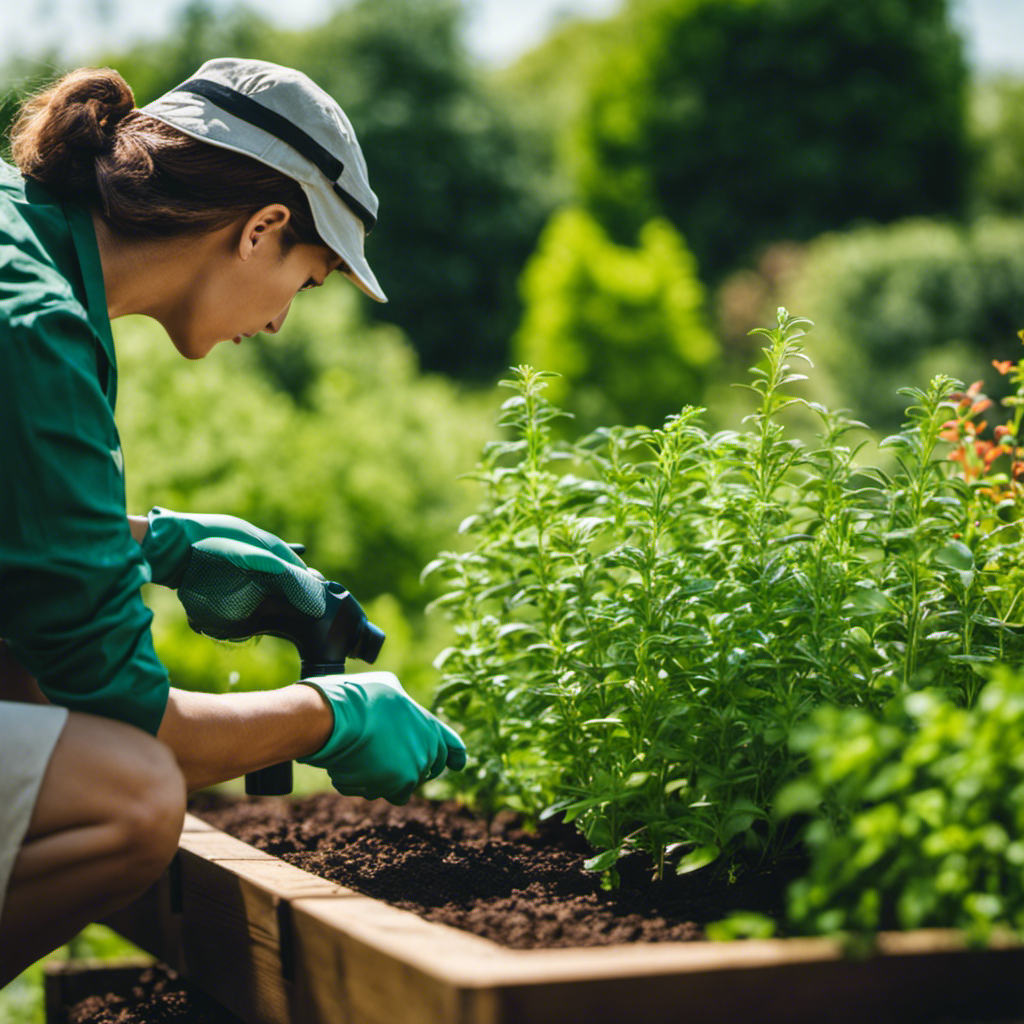
Protecting your herb garden from pests is crucial, and using organic pest control sprays is a safe and effective way to do so.
Unlike chemical-based insecticides, natural pest repellents are non-toxic and don’t harm humans or the environment. These sprays work by either repelling insects or disrupting their reproductive cycle, effectively reducing their population in your garden.
One excellent option for organic pest control is a mixture of neem oil and water. Neem oil acts as a natural insect repellent and disrupts the feeding and reproductive patterns of pests. To use it, simply combine one teaspoon of neem oil with one quart of water and spray it onto your plants.
Another effective spray can be made by blending garlic cloves and chili peppers with water. This garlic and chili pepper spray is effective against a wide range of pests and can be applied directly to the leaves and stems of your plants.
Regular application of these organic pest control sprays will help keep your herb garden healthy and free from pests.
Conclusion
By incorporating essential oils, homemade insect traps, companion planting, and natural pest deterrents, you can effectively control pests in your herb garden. These organic pest control methods provide a sustainable and environmentally friendly approach.
It’s important to regularly monitor your garden, identify pests, and take immediate action. Implementing these natural practices will help you maintain a thriving herb garden free from unwanted intruders.
So, start using these techniques and bid farewell to pesky pests for good!
